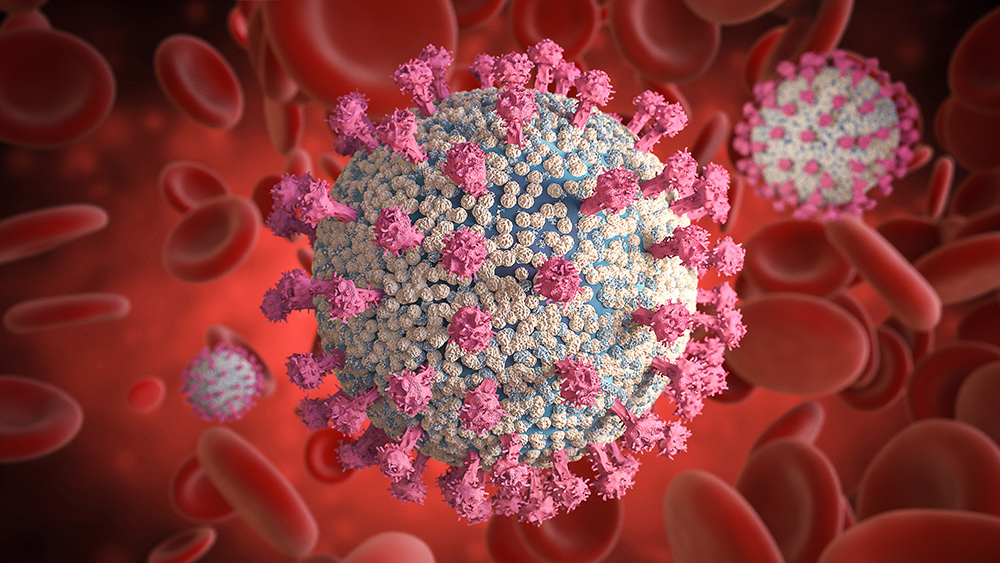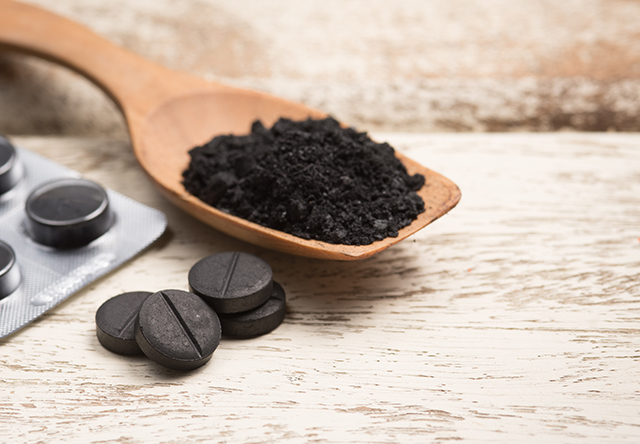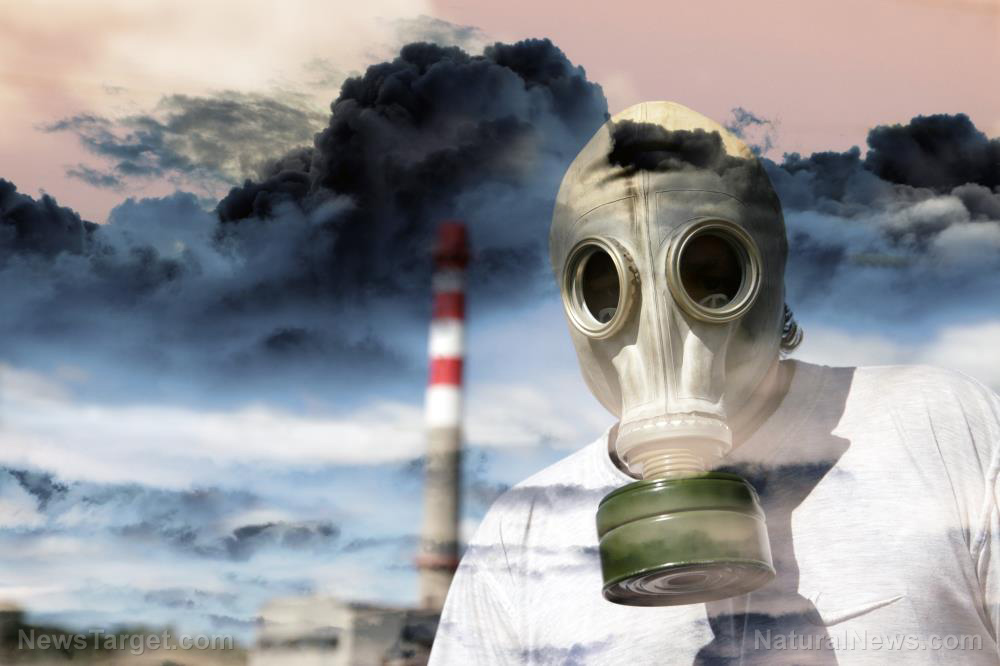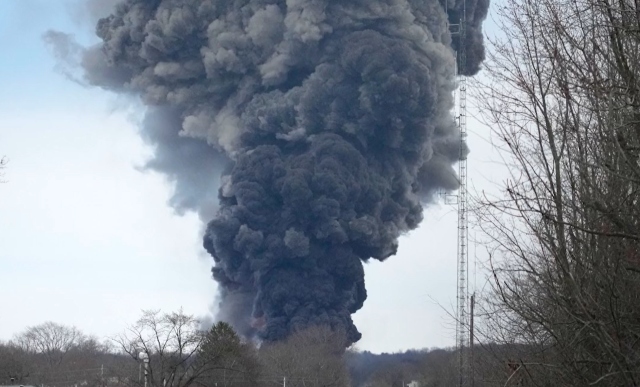200 Million Americans face the constant risk of experiencing chemical disasters like the East Palestine train derailment
02/28/2023 / By Cassie B.
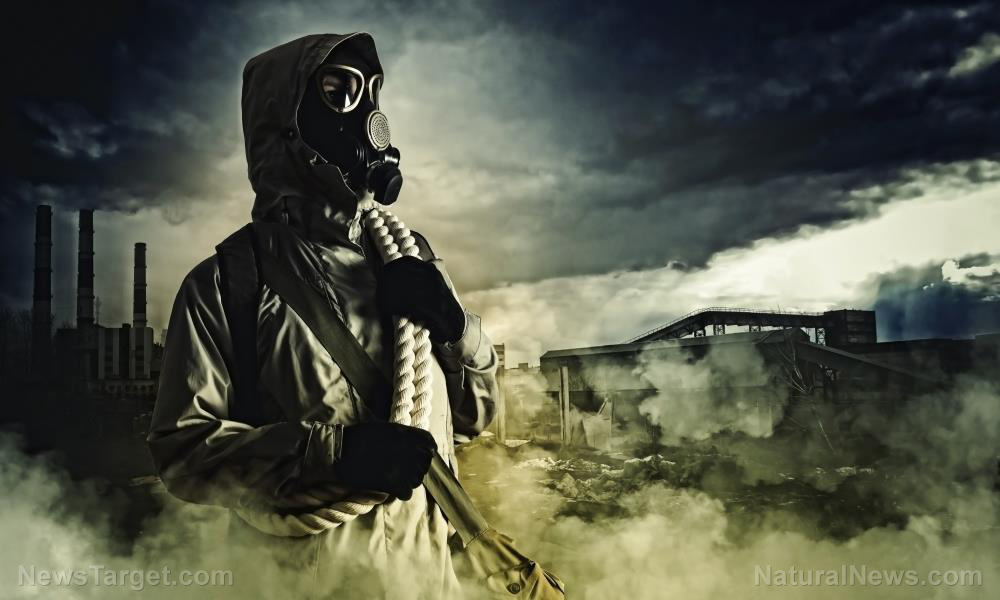
The East Palestine train derailment is a bona fide chemical disaster, with toxic chemicals from the so-called controlled release poisoning all forms of life in the area. If you are fortunate enough to live well outside these chemicals’ reach, you might feel pretty lucky, but experts are warning that this type of disaster is far more common than we’d like to believe – and more than 200 million Americans are at risk of experiencing something similar.
An analysis of data that was compiled by the Environmental Protection Agency (EPA) and nonprofit groups that monitor chemical accidents that take place throughout the nation revealed that accidental releases occur on a regular basis, whether it is through a train derailment, pipeline rupture, a truck accident or an industrial plant spill or leak.
According to one set of data, such incidents take place roughly once every two days.
Former EPA Office of Land and Emergency Management Assistant Administrator Mathy Stanislaus, who was in charge of programs responsible for cleaning up hazardous waste sites and chemical plant safety, noted: “These kinds of hidden disasters happen far too frequently.”
For example, during just the first seven weeks of this year, more than 30 incidents were registered by the Coalition to Prevent Chemical Disasters. This equates to a rate of one incident approximately every day and a half. Last year, the overall number of incidents reported was 188, which represented a rise over the 177 noted in 2021.
Among the incidents the coalition has recorded were a spill of caustic materials at a California recycling facility in September, which caused nine people to be hospitalized and 300 to be evacuated. In Hawaii, a fuel leak caused some people to become ill and contaminated drinking water, and the situation was exacerbated when 1,100 gallons of toxic firefighting foam subsequently spilled out of a Navy storage facility.
In another incident, residents were ordered to shelter in place by authorities following an explosion and fire at a Louisiana petrochemical plant. December, meanwhile, saw multiple incidents, including a biodiesel plant explosion in Iowa that forced evacuations and injured 10 people. In Kansas, a large pipeline ruptured the same month, sending 588,000 gallons of diluted bitumen crude oil into the land and waterways; cleanup is expected to cost $480 million.
The exact number of incidents is difficult to determine due to the fact that multiple agencies are typically involved in these responses, but the EPA says it has carried out 235 emergency response actions each year, on average, and this includes responses to oil and hazardous chemical discharges.
Many people living in daily fear of chemical accidents are disadvantaged and minorities
According to Stanislaus, the East Palestine incident is actually a regular occurrence for those who live in areas near chemical plants. “They live in daily fear of an accident,” he said.
He added that around 200 million people have a regular risk of this type of incident, many of whom are disadvantaged and minorities.
A Government Accountability Office report identified 12,000 facilities throughout the country with “extremely hazardous chemicals in amounts that could harm people, the environment, or property if accidentally released” on site. These include wastewater treatment plants, chemical manufacturers, petroleum refineries, fertilizer plants and cold storage facilities.
More than 1,600 accidents took place at these facilities during the 10 years up to 2013, at a rate of 160 per year.
While chemical industry advocates claim that incidents at chemical facilities are declining, watchdog groups point out that delays in reporting incidents is making the situation appear to be improving when it is not. In fact, the EPA reports that sheltering, evacuations, and the number of people seeking medical treatment related to chemical accidents are all rising.
Sources for this article include:
Submit a correction >>
Tagged Under:
big government, chaos, chemical disasters, chemical spills, Dangerous, derailment, disaster, Ecology, environment, industrial accidents, national security, panic, poisons, risk, toxic chemicals, toxins, train derailment
This article may contain statements that reflect the opinion of the author


